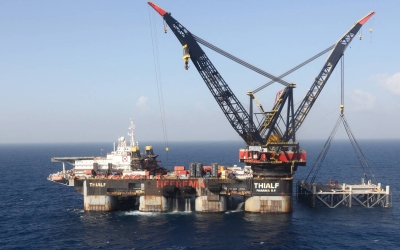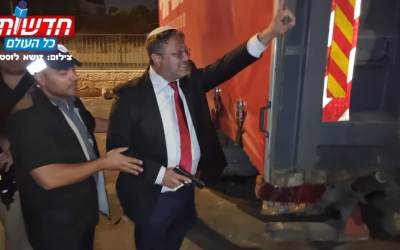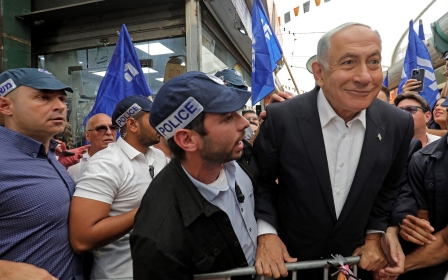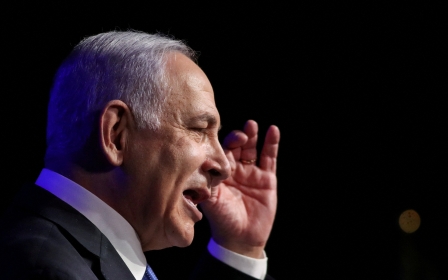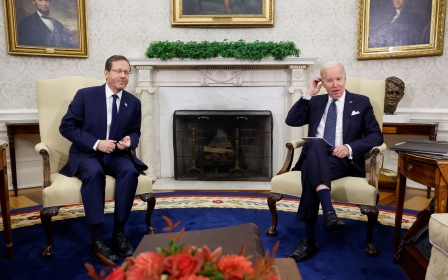Netanyahu pledges to ‘neutralise’ Lebanon maritime deal
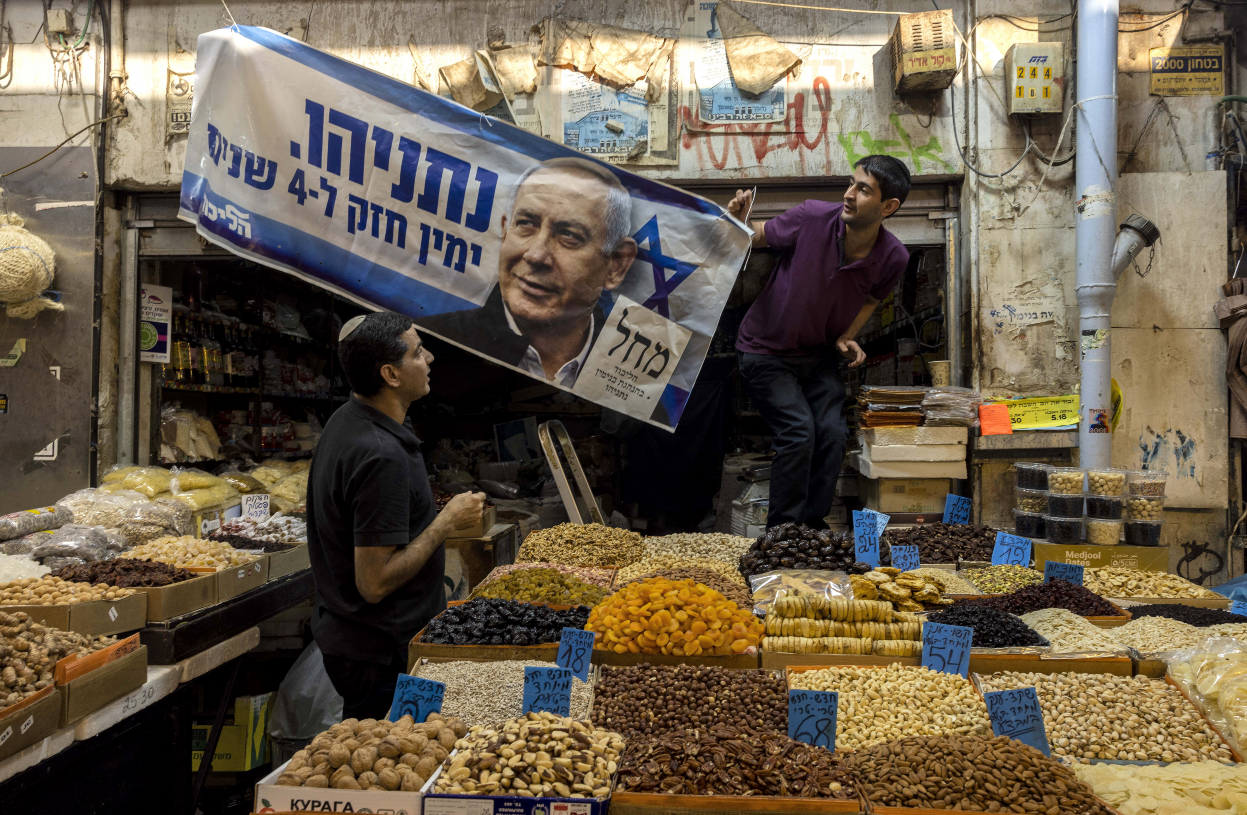
Benjamin Netanyahu said that he would “neutralise” a historic maritime deal with Lebanon the same way he did the Oslo Accords, one day before Israelis are set to vote in an election that could potentially return the former prime minister to power.
“I will behave as I did with the Oslo Accords,” Netanyahu said in an interview with Army Radio, adding that the Oslo Accords with the Palestinians “were not cancelled, they were neutralised”.
Polls for Tuesday’s election show Netanyahu and his allies just shy of securing the 61-seat parliamentary majority needed for a majority in Israel’s 120-member Knesset.
If Netanyahu returned to power, it would mark a stunning comeback for the 73-year-old Likud member. He served as prime minister for longer than anyone in Israel's history before he was ousted in June 2021 by an ideologically-divided coalition forged by the current caretaker Prime Minister Yair Lapid.
Netanyahu has long billed himself as the Jewish state's guarantor of security, and has taken aim at the maritime deal that Israel reached with its Mediterranean neighbour, deeming it “illegal”.
Critics say the Likud leader was himself close to striking the same deal as prime minister, which allows both Israel and Lebanon to tap potentially lucrative gas deposits.
The agreement, brokered by the US, is seen as a step towards defusing tensions in the Mediterranean Sea that some speculated could have escalated into conflict. Lebanon’s Iran-backed Hezbollah had threatened to strike Israel if it began drilling for gas before an agreement.
Deadly times
Israel enters the election - its fifth in less than four years - during one of the deadliest phases in the Israeli-Palestinian conflict. Israeli forces and settlers have killed more than 175 Palestinians this year, including more than 125 in occupied East Jerusalem and the West Bank, of whom more than 45 were killed in the last two months alone.
According to the UN, 2022 is so far "the highest year for Palestinian fatalities in the West Bank, compared to the same period in the previous 16 years". Near-daily raid-and-arrest operations have increased across the occupied Palestinian territories, which the Israeli army says are aimed at stamping out a resurgence of Palestinian armed resistance, particularly in the northern cities of Nablus and Jenin.
Meanwhile, Nablus and Jenin have emerged as hotbeds of armed resistance against Israel. Palestinian fighters have been increasingly attacking army checkpoints and posts, as well as confronting Israeli troops during city raids.
Israeli forces have responded by laying siege on Nablus for three weeks, with roadblocks and checkpoints preventing vehicles from moving in and out.
The Israeli army says the measures were enforced to stop attacks against Israeli targets carried out by a newly-formed armed group in the city called the Lions' Den, but have been criticised for disrupting the lives of more than 200,000 Palestinians living in the area.
Some analysts have said that the heightened tensions could help Netanyahu in the elections, who has tilted further to the right as he looks to pick up seats in parliament.
In his interview on Tuesday, the former premier said he would consider making far-right Israeli lawmaker Itamar Ben Gvir police minister.
“I don’t disqualify him [Gvir]” for the post of public security minister, Netanyahu said, but “there are a lot of candidates”.
“Likud has to be the biggest party, and only then I can appoint ministers like Ben Gvir and [Bezalel] Smotrich,” he said, referencing Ben Gvir’s running mate in the religious Zionism-Otzma Yehudit alliance.
Ben Gvir is an ultra-nationalist politician who has pledged to advance a law that would strip citizenship from and expel “anyone working against Israel from within Israel”. He made headlines earlier this month after pulling a gun on residents in the Palestinian neighbourhood of Sheikh Jarrah in occupied East Jerusalem.
Ben-Gvir has told Israeli media that one of his demands for joining any coalition following Israel's elections would be changes to open-fire rules for the police and army against Palestinian protestors.
Middle East Eye delivers independent and unrivalled coverage and analysis of the Middle East, North Africa and beyond. To learn more about republishing this content and the associated fees, please fill out this form. More about MEE can be found here.


